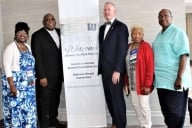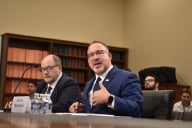You have /5 articles left.
Sign up for a free account or log in.
This last year has seen an increasing number of colleges go test optional, meaning that applicants decide for themselves whether to submit SAT or ACT scores. Many of these colleges report increases in application numbers, particularly from minority applicants. But some have suggested that these moves are motivated more by a goal of gaming the rankings and promoting colleges' own interests than by promoting diversity. When a college is test optional, the theory goes, everyone with scores above the average for that college will continue to submit their scores, while others won't, so the average SAT score goes up, and rankings may follow.
But there is one competitive college in America today whose testing policy can't be seen as gaming the rankings -- and that's because its policy results in U.S. News & World Report refusing to rank it.
That institution is Hampshire College, which last year announced that it was going "test blind." (It had already been test optional.) Test blind means that Hampshire will not look at applicants' test scores -- even if they are submitted. Admissions officers do review high school records, essays and more, but no applicant is evaluated by an SAT or ACT score. (Sarah Lawrence College was test blind for several years, but in 2012 returned to test optional.)
On Sunday evening, Hampshire released the results of the first full admissions cycle without any testing and without any ranking in U.S. News. And the numbers have Hampshire officials celebrating -- despite a significant decline in the number of applicants. The enrolled class is larger, and the yield is up significantly, as is enrollment of minority and first-generation students. The primary measure of academic quality -- high school grade point average -- stayed the same (3.5).
"I really believe we admitted the best class in decades, using a truly holistic admissions process," said Meredith Twombly, dean of enrollment and retention.
Twombly linked the success of the college's efforts in part to its willingness to stop being ranked. Applications fell significantly, from 2,600 to 2,050, and Twombly said such a drop would terrify someone looking to go up or even stay in the same place in the rankings. But she said that not being ranked left her to not worry too much about that decline.
She attributed it to the other changes Hampshire made when it went test blind. In the past, applicants could have used the Common Application and one "Why Hampshire?" question. This year, without test scores to consider, the college kept its previous requirements, but added two essays and a graded high school paper. Those additions meant that students who might have been casual applicants, figuring it was easy enough to add one more college on the Common Application, opted not to apply, Twombly said.
The numbers back up her theory that those who did apply were more serious about the college than were some applicants in years past -- and they also are more diverse:
- The freshman class that enrolled has 380 students, up from 331 a year ago.
- Those gains reflect a nearly 50 percent increase in the yield rate (the percentage of accepted applicants who enroll), from 18 to 26 percent.
- The percentage of minority students increased from 26 to 31 percent. (That figure covers all American, nonwhite students, a majority of whom are black or Latino.)
- The percentage of students whose parents never attended college increased from 12 to 18 percent.
- The number of international students increased from 10 to 27. (While those numbers are small, Twombly noted that conventional wisdom holds that potential international students and their parents tend to be particularly reliant on rankings.)
Hampshire, which is known as a place where students are expected to create a customized course of study, is in some ways an unusual college that may attract students who aren't impressed by rankings. Twombly said that before the college went test blind, it did focus groups with juniors and seniors at the college about how much they cared about rankings, and found that the answer was "not much."
But Twombly said that the success of Hampshire should raise questions for others. And she said that Hampshire's policy points to a contradiction elsewhere.
"Every time a school makes the decision to go test optional, they come out with a statement that they have learned from research that tests aren't the best predictors," she said. "I can never figure out why, if they are citing research that tests are not a good predictor, why they don't stop using the tests."
Follow me on Twitter @scottjaschik








